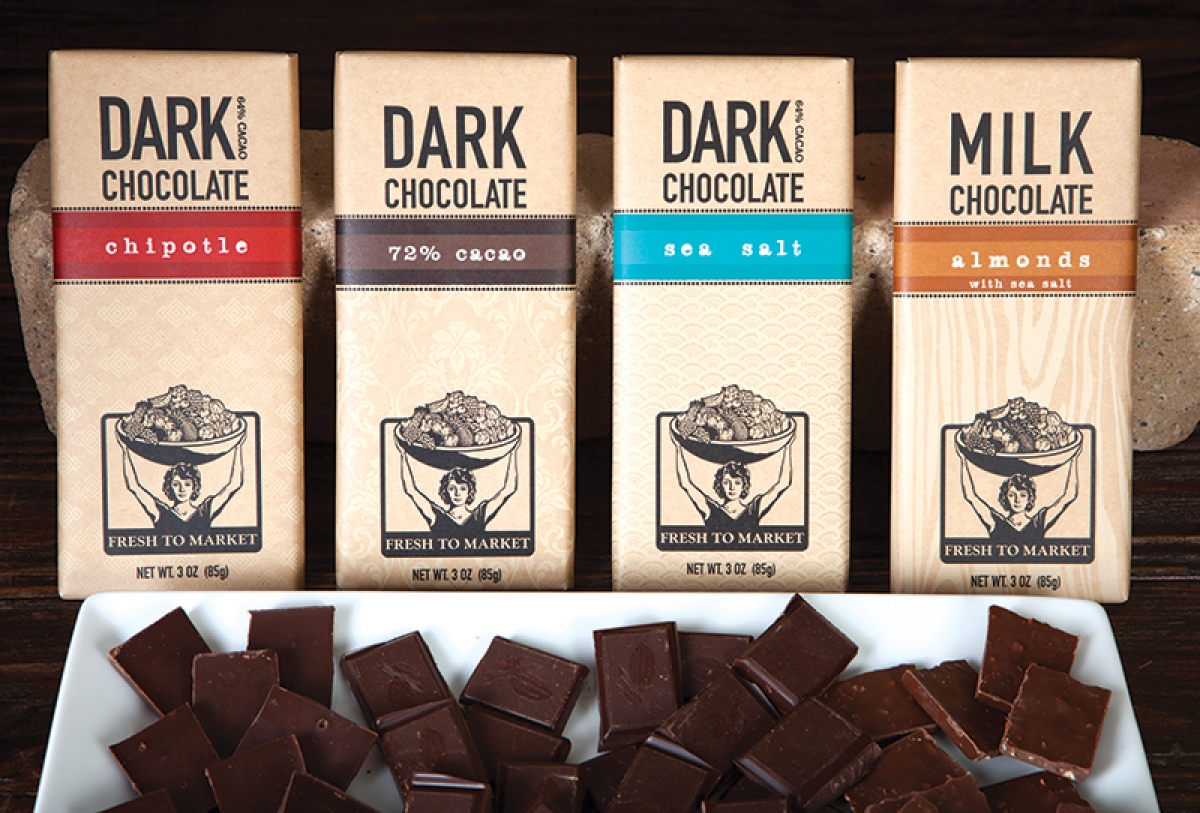Daily Dish the Nugget Markets blog

For the love of chocolate!
Health Notes with Dr. Liz
Please note that this is an older article. Any products or services pictured or described may have changed or may no longer be available. Thank you for visiting!
Who doesn’t love chocolate? Lately, even scientists do! According to research, eating small amounts of chocolate (a little over an ounce) daily may help protect against heart disease and stroke, as well as boost your sense of well-being.
Who doesn’t love chocolate? Lately, even scientists do! According to research, eating small amounts of chocolate (a little over an ounce) daily may help protect against heart disease and stroke, as well as boost your sense of well-being. Thanks to cocoa beans, chocolate contains the same protective compounds called flavanoids found in other plant-based foods like red wine and berries, which may protect your heart in several ways:
- Research from UC Davis suggests that about 1 ounce of chocolate daily keeps the “bad carrier” of cholesterol called LDL from oxidizing, which is considered a pivotal step in the development of heart disease.
- Additional research shows a daily dose of flavanoid-rich dark chocolate lowers circulating levels of an inflammatory marker, which boosts the risk of vascular disease and diseases related to inflammation like diabetes.
- A collection of research studies suggests that chocolate eaters (daily consumers) have a lower risk for vascular disease than folks who avoid chocolate all together. While there may be other reasons for this difference is disease risk, the evidence points to chocolate as a plant food that may boost health.
- A flavanoid in chocolate may improve blood flow to the brain and elsewhere, and studies show this may help control blood pressure, which is a major risk factor for heart disease. This boost in blood flow may also have implications for exercise performance. (What? Eat chocolate before a run?? Maybe!)
- That same flavanoid may also keep blood compounds called platelets from “sticking” together. “Sticky” platelets gum up artery walls leading to heart disease and some forms of stroke.
So the big question is, is darker better? The darker the chocolate, the more cocoa solids (shown by a percent on the label) the chocolate has, usually accompanied by a stronger taste and more health-boosting flavanoids. (White chocolate—not true chocolate made from cacao solids—has no heart-healthy compounds.)
But there is a catch—the processing of cocoa solids by the manufacturer may destroy some of the health-boosting properties. Some chocolate makers, such as Mars® (makers of Dove®, which is used in research studies) take great care to ensure they make flavanoid-rich products that supply amounts known to boost health.
While chocolate can have health benefits, keep in mind that it’s also a rich source of calories with almost 200 per ounce. So, enjoy your chocolate as part of a diet with ample veggies, fruits and whole grains for an array of flavanoids and other health-boosting compounds.